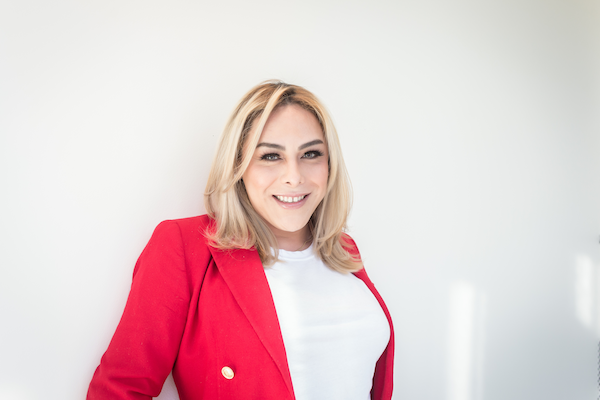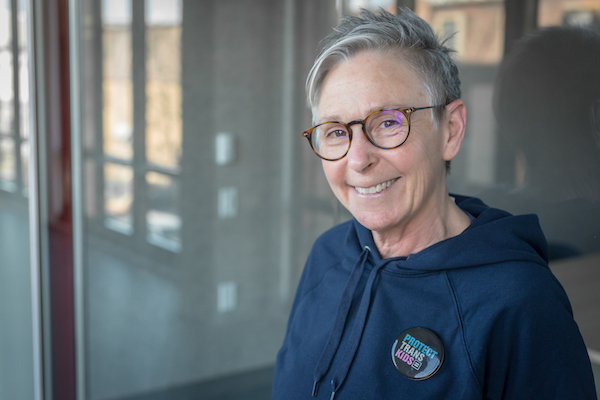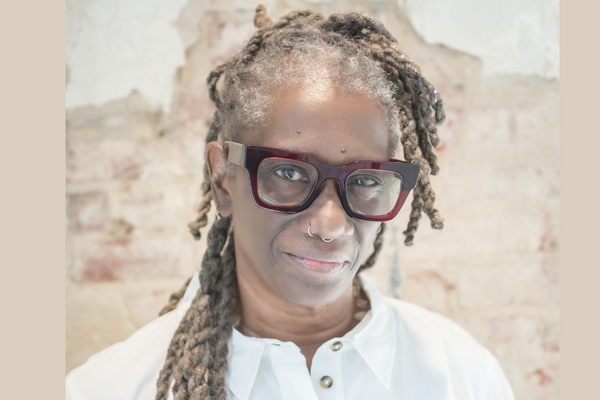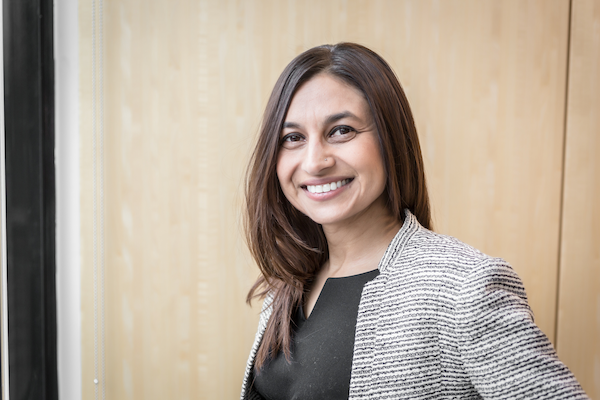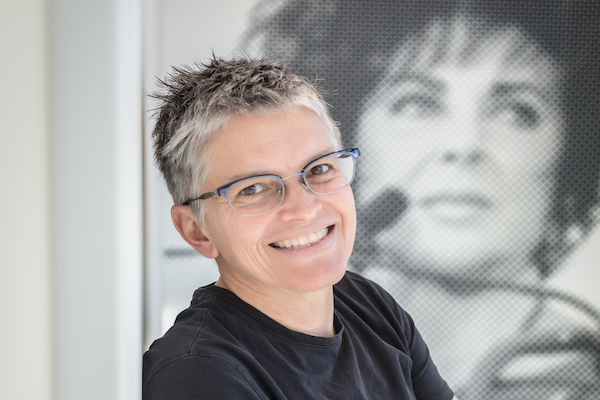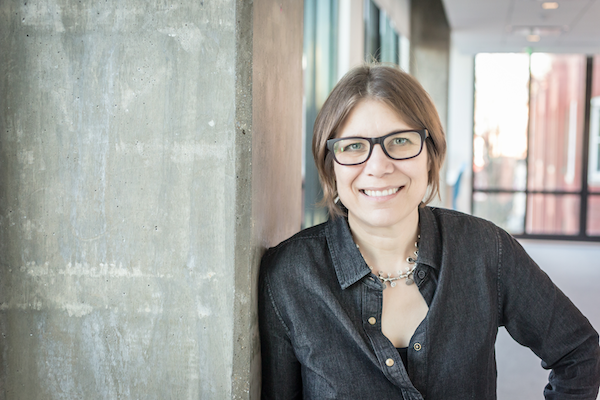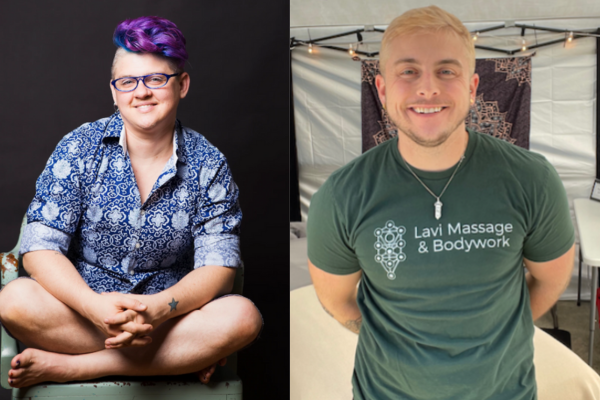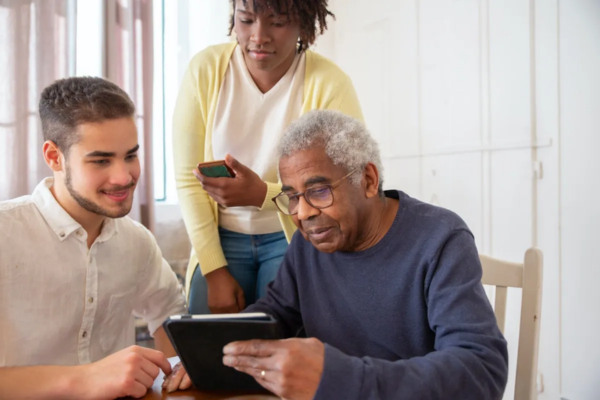
Erin’s Guide to Kissing Girls Had Me Wishing I Was A Queer Kid
March 13, 2023
Spectacular Sydney WorldPride: LGBTQ+ Event Attracts Visitors From Around the World
March 18, 2023Every year, Tagg Magazine‘s Enterprising Women spring issue features LGBTQ+ women making a difference in their communities and industries. We’ve profiled over 65 queer women from across the country. This year’s issue focuses on the enterprising women of Whitman-Walker Health, a non-profit organization offering affirming community-based health and wellness services to all with a special expertise in LGBTQ+ and HIV care. Tagg is celebrating the queer women and allies behind the LGBTQ+ health movement. They offer an array of programs and services for all members of our community.
This year’s group of enterprising women come from different backgrounds and have different talents, but all of them have a commitment to inclusive and competent healthcare within and outside of Whitman-Walker Health.
Lissa Alfaro
By Clare Mulroy
After nearly two decades of serving the LGBTQ+ community, increasing trans representation in public health is a goal that keeps Lissa Alfaro motivated.
Alfaro is a community health educator at Whitman-Walker Health where she spends her days coordinating outreach efforts for the sexual health clinic, meeting with patients, and discussing screening and treatment for STIs.
“I wish we could see more of the trans community in this workplace,” Alfaro says, citing that fewer trans women get these kinds of employment opportunities. “I would like to see people like me serve the trans community.”
She wants to encourage trans women to continue their education and hopes to create training opportunities for trans folks to gain marketable skills. Moving to the U.S. and going to school changed her life, she says, and she wants other trans women to see anything is possible with hard work.
But working with the trans community in D.C. is only half of Alfaro’s story of LGBTQ+ advocacy. In her native El Salvador, Alfaro’s efforts span a decade. She worked with ASPIDH, an organization dedicated to defending the rights of the trans community in El Salvador, going out on the street to talk about HIV prevention, safe sex practices, and helping with HIV testing.
Though she now lives in D.C. with her husband of five years, it’s her work from El Salvador that laid the foundation for her outreach at Whitman-Walker, serving the community she is a part of. “I feel connected with them because I [am] a part of them, and I feel them and see them,” Alfaro says. “That’s why I love my job.”
Ellen Kahn
By Annie Brown
Ellen Kahn has a special place in her heart for Whitman-Walker, where she worked from 1994 to 2005. During this time, Kahn built upon the organization’s legacy of comprehensive, inclusive care for lesbians and queer-identified women. In 1990, Whitman-Walker launched the Lesbian Services Program (LSP) to reaffirm its commitment to lesbian health, which wasn’t as visible at the height of the AIDS crisis. Initially, LSP offered gynecological services and educational and peer support programs.
Kahn took the helm of LSP in the late ‘90s. As director, she led a team of colleagues and volunteers who shared a vision for robust programs and creating a space that was inclusive of BIPOC and transgender individuals.
“If I had to choose, I would say that I am most proud of expanding our programs to include folks of transmasculine experience,” Kahn says. “That was quite cutting-edge 20 years ago, and it wasn’t always easy to create safe, welcoming spaces in what had for years been a predominantly lesbian-feminist space.”
Expanding LSP programs for LGBTQ+ parents and prospective parents was another major focus for Kahn. As a new parent herself at the time, Kahn helped establish classes and support groups focused on starting families and raising children.
When LSP closed its doors in 2005, a new door opened for Kahn at the Human Rights Campaign (HRC), giving her the opportunity to advocate for families on a national level. As senior director of programs and partnerships at HRC, much of her current focus is on supporting trans and non-binary youth and their families through a variety of initiatives.
Even in the face of significant anti-LGBTQ+ backlash, Kahn isn’t going to stop working on behalf of the community any time soon. Kahn, who turns 60 this March, proudly declares, “I won’t retire until at least 70!”
D. Magrini
By Becca Damante
It’s no secret than LGBTQ+ people are more likely to experience discrimination and bias in healthcare settings when compared to their straight, cisgender peers, and the statistics are even worse for LGBTQ+ people of color. Unfortunately, many medical professionals do not understand how to treat LGBTQ+ individuals, which can cause LGBTQ+ folks to delay or avoid receiving important medical care.
That’s where D. Magrini comes in. As Whitman-Walker Health’s Director of External Training, Magrini trains medical professionals and their staff on the best ways to engage the LGBTQ+ community and writes and delivers LGBTQ+ cultural competency trainings. Though Magrini says that her proudest accomplishment is assisting her clients, she feels that her larger purpose is “to be here now” and “to be a visible Black Lesbian, aging.”
Over the course of her life, Magrini has been heavily involved in work centering the LGBTQ+ community. Magrini came to Whitman-Walker Health in the 1990s, and then left to serve at the Mautner Project for Lesbians with Cancer. She also worked at an LGBTQ+ bookstore in Washington, D.C. called Lambda Rising, which she describes as “often beautiful and often heartbreaking,” especially during the HIV epidemic.
A native of D.C., Magrini recalls being born right before the murder of Emmett Till and how it impacted her childhood. “That horror affected all the adults in my life, turning their caring eyes into laser focused beams to keep my body safe,” shares Magrini.
Now, Magrini spends her time caring for others in her community. “Providing healthcare, advocating for competent healthcare for all, especially those who are most marginalized is one aspect of the ‘good trouble’ that John Lewis urged us to take up,” says Magrini. “I mean, aren’t we here to be of help and comfort to those in need?”
Dr. Rupa Patel
As an infectious disease physician, Dr. Rupa Patel puts her allyship to the LGBTQ+ community into practice every day. Her position as Biomedical HIV Prevention Medical Liaison and Research Lead at Whitman-Walker Institute/Health results in a split between clinical care and research, providing her a bird’s eye view of the healthcare system.
Every day, she strives to make that system better. The implementation science research she specializes in is conducted in a clinic setting and results in learnings that immediately impact patients, doctors, and health care systems. “Day-to-day, my job is really exciting because I’m seeing patients in person, across the spectrum from primary care to HIV prevention, and also advanced HIV care. I also interact with the health care system daily, so I see the paperwork and barriers that impact these patients,” she says.
Dr. Patel works with her team to disseminate this information to others in the field. She hosts telehealth visits, teaches PrEP specialists within the clinic, completes grant-based research, writes papers that further spread important information to other doctors, and serves as an advisor to the World Health Organization.
“The heart of what I do every day is trying to find and discover new medications and bring them effi ciently into practice,” she says. To do this she works with others in the healthcare system as well as shelters and social workers to address issues such as housing and insurance that can prevent patients from accessing medication.
Dr. Patel likes that her field incorporates these social aspects into the overall understanding of healthcare. “I enjoy creating a safe space to have a health conversation. It’s not just about a positive or negative test, it’s the art of figuring out what a patient needs [like a mental health counselor] so they can take their medications every day.”
Joanne Sincero
By Becca Damante
Over the last 28 years, Joanne Sincero has played an essential role in the work of Whitman-Walker Health. In 1994, she joined the organization as an employee of the Bill Austin Day Treatment Center for people living with HIV, and since then, she has never looked back.
For the last 10 years, Sincero has worked at Whitman-Walker as a Wellness Coordinator, where she assists clients in self-identifying areas to improve their health and helps them manage chronic conditions. But her work at Whitman-Walker was not the first time she became involved in community health work. Before joining Whitman-Walker, Sincero worked and volunteered on behalf of people experiencing homelessness in Washington, D.C. at N Street Village and at several group homes for people with mental health challenges.
“These were communities that were and are so marginalized, and I felt like I could make an impact by simply listening and treating people with respect before doing anything,” says Sincero.
During the AIDS crisis, Sincero was also involved in a direction action group called Oppression Under Target (OUT), which focused on putting pressure on the FDA to streamline the HIV drug approval process, as well as the repeal of anti-sodomy laws and Planned Parenthood clinic defense.
Though she acknowledges that lots of progress has been made since then for LGBTQ+ people and people living with HIV, more work needs to be done.
“I think that many LGBTQ+ folks have a recent memory of a health care experience where an assumption or a judgement was made about us based on a perception rather than information we might have shared,” says Sincero. “Health care providers have made progress in seeing us, but the medical content in how to treat LGBTQ+ people can still be lacking.”
lisa wise
By Annie Brown
Delivering exceptional, affordable health care requires a balance of putting people first and finding novel ways to do business. lisa wise, who recently served as chair of the board of Whitman-Walker Health Center, is no stranger to either.
wise spent the first 15 years of her career in the nonprofit sector, which included five years as a field organizer for Planned Parenthood. But during the Great Recession, wise decided to lean into her entrepreneurial side. In 2009, she founded Nest DC, a property management company focused on cultivating quality homes for residents. wise’s
commitment to putting people over profit allowed Nest DC to flourish and additional companies to take shape. Her family of businesses includes an employee-owned property management company and a concierge home maintenance service for homeowners. And in 2021, wise founded birdSEED, a nonprofit that provides down payment grants to BIPOC first-time homebuyers no strings attached.
wise’s professional background made her a natural fit for Whitman-Walker Health System’s board of directors. And the organization’s trajectory was attractive to her: “Whitman-Walker has a really intriguing business model and footprint in the city,” she says. “It’s not simply about continuing to serve one area or region within the city but looking out to how we can accelerate our ability to serve a broader community.”
This acceleration pivoted at the start of the COVID-19 pandemic, which created an urgent need for expanded telehealth services and coordination to ensure patients could safely receive in-person care. To streamline collaboration during this crucial time, wise established a joint chairs committee comprised of leadership and board members of Whitman-Walker’s various entities—which include a health system, a clinic, and a foundation. It’s an effort wise says will allow Whitman-Walker to have the best possible impact and one that “will create a much clearer path forward for everyone to work together as well as possible.”



